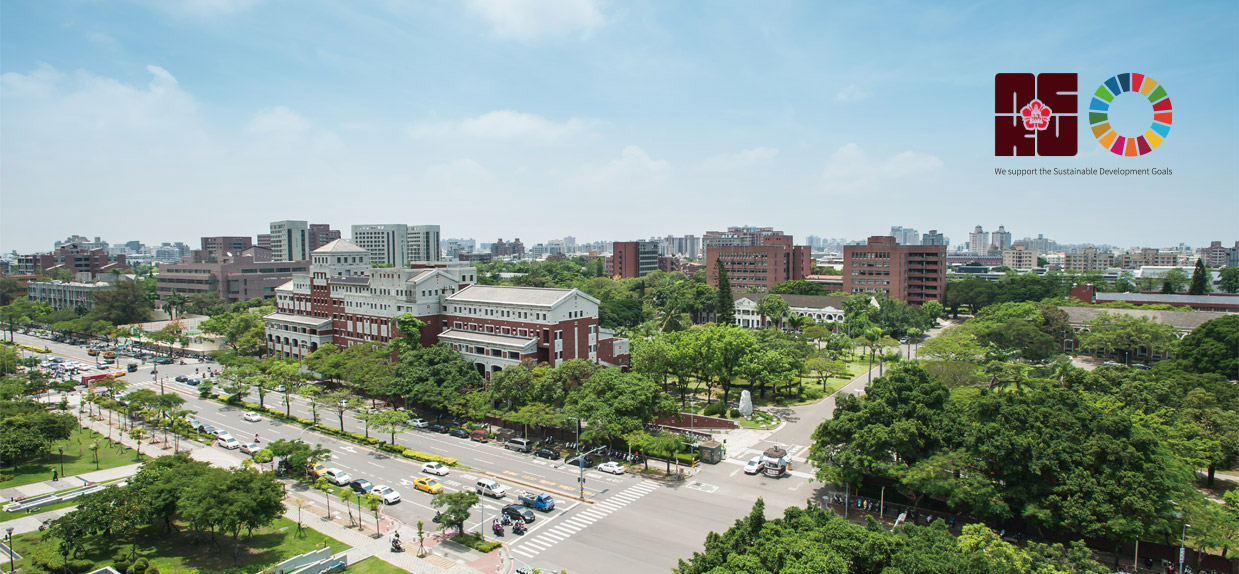
Disposable policy: extensions to services

Disposable policy: extensions to services
- Regulations for On-Campus Food Vendor Contracts
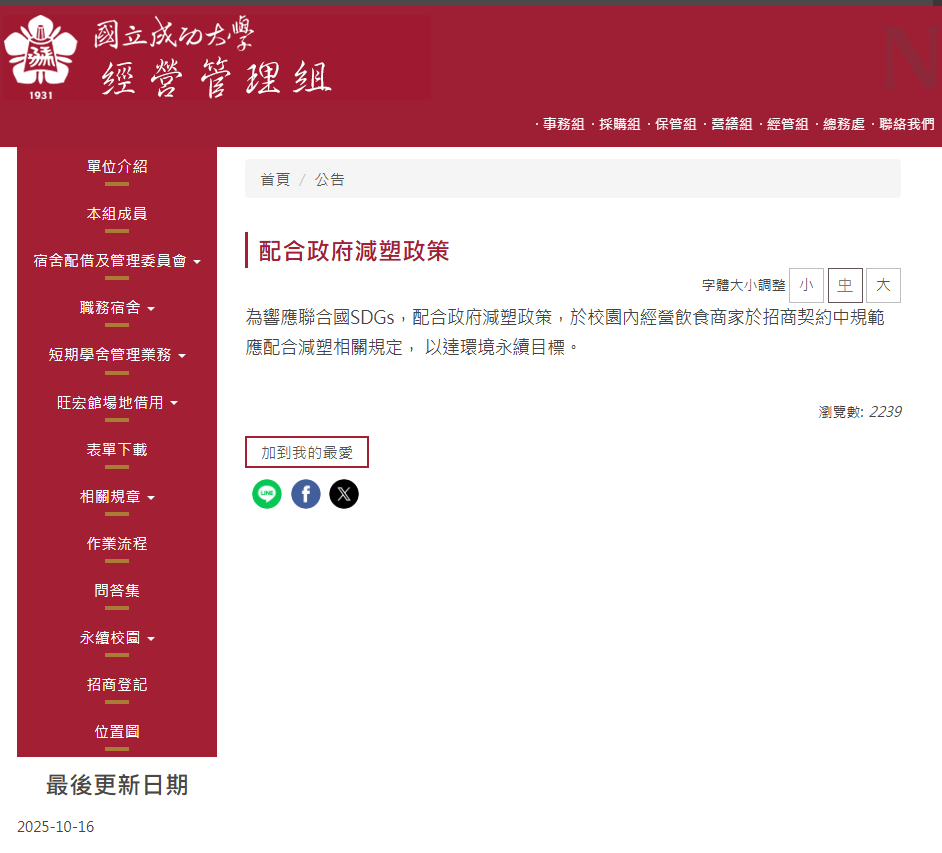 In response to the United Nations Sustainable Development Goals (SDGs) and in alignment with government plastic reduction policies, NCKU has incorporated plastic reduction requirements into the contractual terms for food vendors operating on campus. All partnered dining service providers are required to comply with these regulations, avoiding the use of single-use plastic products and supporting the promotion of eco-friendly practices to achieve source reduction and circular reuse. This measure not only ensures consistency between outsourced services and the university’s plastic reduction policies but also demonstrates NCKU’s concrete actions in extending sustainability principles to its supply chain and external partners. Through institutionalized contract management, the university continues to promote a low-carbon campus and environmentally friendly goals.
In response to the United Nations Sustainable Development Goals (SDGs) and in alignment with government plastic reduction policies, NCKU has incorporated plastic reduction requirements into the contractual terms for food vendors operating on campus. All partnered dining service providers are required to comply with these regulations, avoiding the use of single-use plastic products and supporting the promotion of eco-friendly practices to achieve source reduction and circular reuse. This measure not only ensures consistency between outsourced services and the university’s plastic reduction policies but also demonstrates NCKU’s concrete actions in extending sustainability principles to its supply chain and external partners. Through institutionalized contract management, the university continues to promote a low-carbon campus and environmentally friendly goals.- NCKU x AET Campus Plastic Bag Recycling System
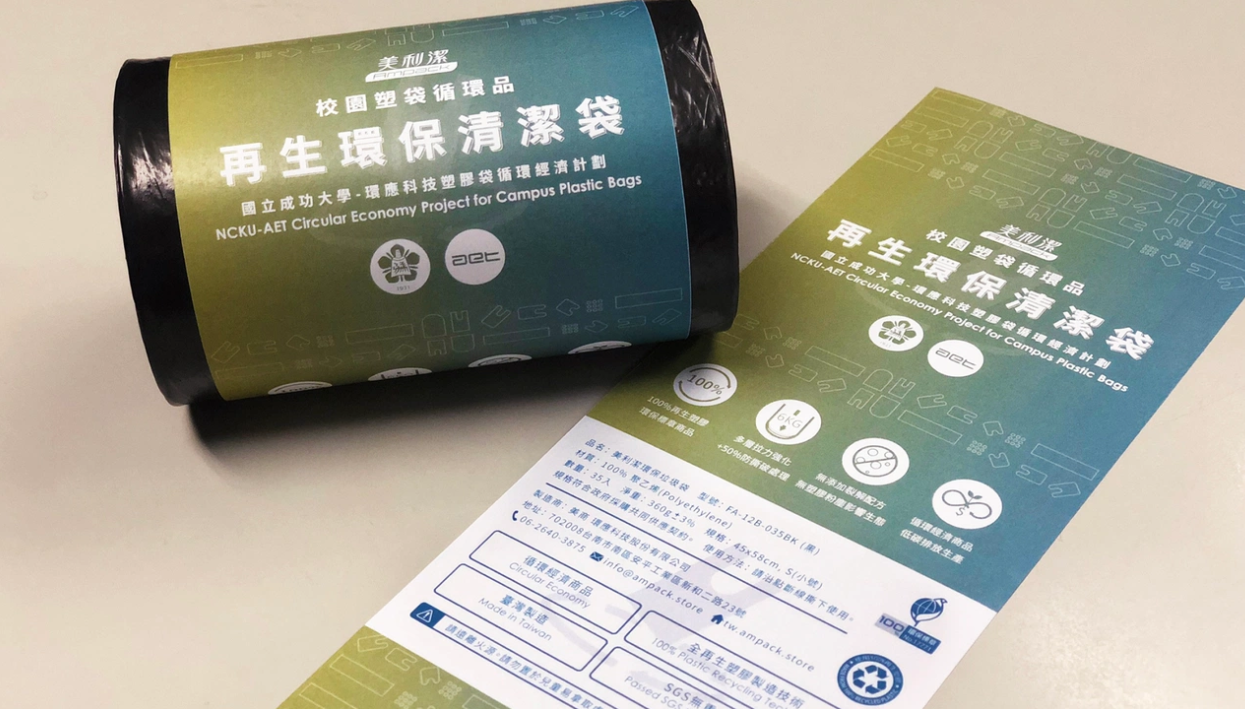 NCKU, in collaboration with Ampack Technology, has launched the “Campus Plastic Bag Recycling Project,” applying the concept of circular economy to transform collected campus plastic bags into “recycled eco-cleaning bags.” These cleaning bags are made from 100% recycled plastic, offering high strength, durability, and carbon reduction benefits, with each kilogram of recycled material reducing approximately 2.7 kilograms of CO₂ emissions. This initiative not only implements campus resource recovery and waste reutilization but also demonstrates the university’s concrete actions in advancing plastic reduction and circular economy practices. Through industry-academia cooperation, NCKU transforms discarded plastics into functional products, extending its environmental policies into the supply chain, thereby promoting sustainable campus development and aligning with the SDGs.
NCKU, in collaboration with Ampack Technology, has launched the “Campus Plastic Bag Recycling Project,” applying the concept of circular economy to transform collected campus plastic bags into “recycled eco-cleaning bags.” These cleaning bags are made from 100% recycled plastic, offering high strength, durability, and carbon reduction benefits, with each kilogram of recycled material reducing approximately 2.7 kilograms of CO₂ emissions. This initiative not only implements campus resource recovery and waste reutilization but also demonstrates the university’s concrete actions in advancing plastic reduction and circular economy practices. Through industry-academia cooperation, NCKU transforms discarded plastics into functional products, extending its environmental policies into the supply chain, thereby promoting sustainable campus development and aligning with the SDGs.- Campus Scholars Propose Plastic Reduction Initiatives
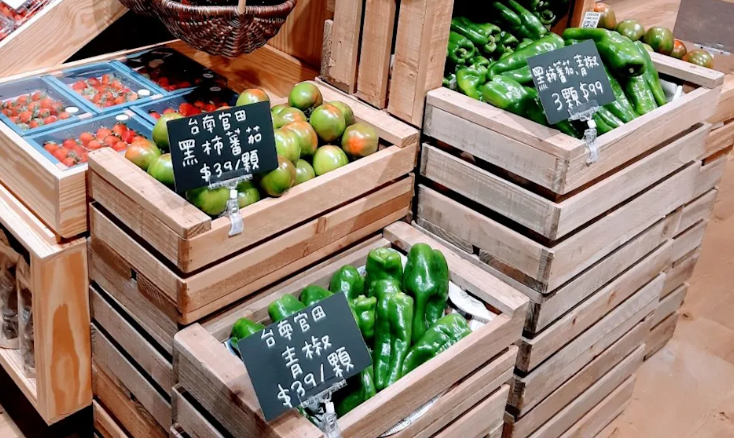 Professor Hsin-Tien Lin from the Department of Environmental Engineering at NCKU leads a research team promoting the “Naked Sale of Fruits and Vegetables” initiative to reduce plastic use. The campaign urges retail channels across Taiwan to cut down on excessive packaging in order to lower reliance on single-use plastics. Research shows that many fresh produce items do not require additional plastic wrapping; selling them without packaging not only effectively reduces plastic waste but also meets food preservation needs and consumer demand. This initiative has gained support from environmental organizations such as Greenpeace and aligns with the UN SDGs on sustainable consumption and production. By combining scientific research with social advocacy, NCKU scholars demonstrate their expertise and influence in advancing plastic reduction policies, further extending environmental responsibility practices into external supply chains.
Professor Hsin-Tien Lin from the Department of Environmental Engineering at NCKU leads a research team promoting the “Naked Sale of Fruits and Vegetables” initiative to reduce plastic use. The campaign urges retail channels across Taiwan to cut down on excessive packaging in order to lower reliance on single-use plastics. Research shows that many fresh produce items do not require additional plastic wrapping; selling them without packaging not only effectively reduces plastic waste but also meets food preservation needs and consumer demand. This initiative has gained support from environmental organizations such as Greenpeace and aligns with the UN SDGs on sustainable consumption and production. By combining scientific research with social advocacy, NCKU scholars demonstrate their expertise and influence in advancing plastic reduction policies, further extending environmental responsibility practices into external supply chains.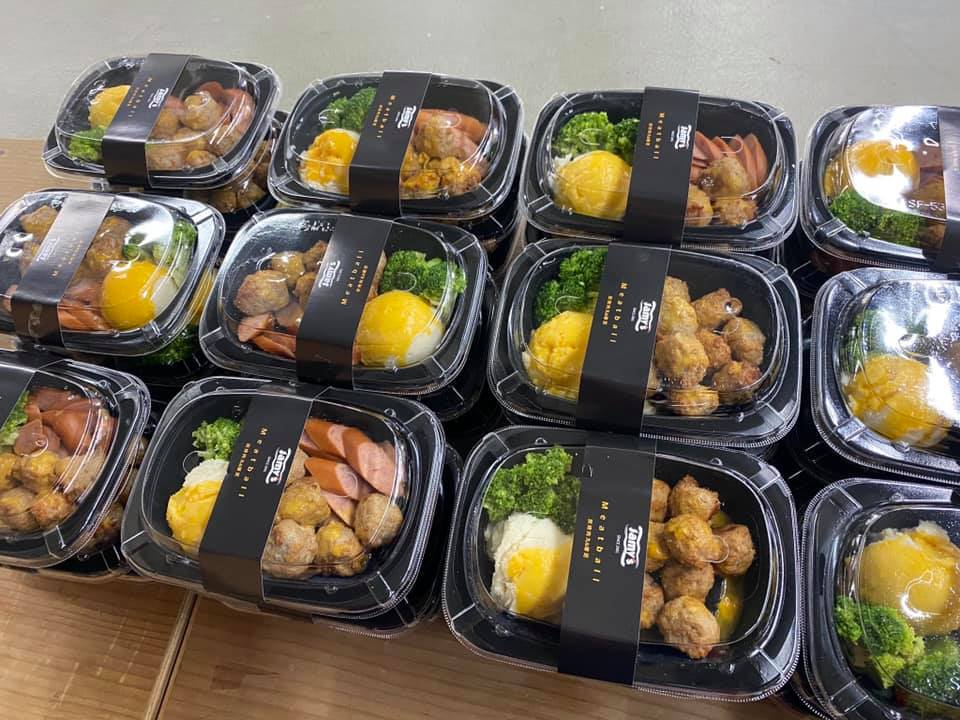


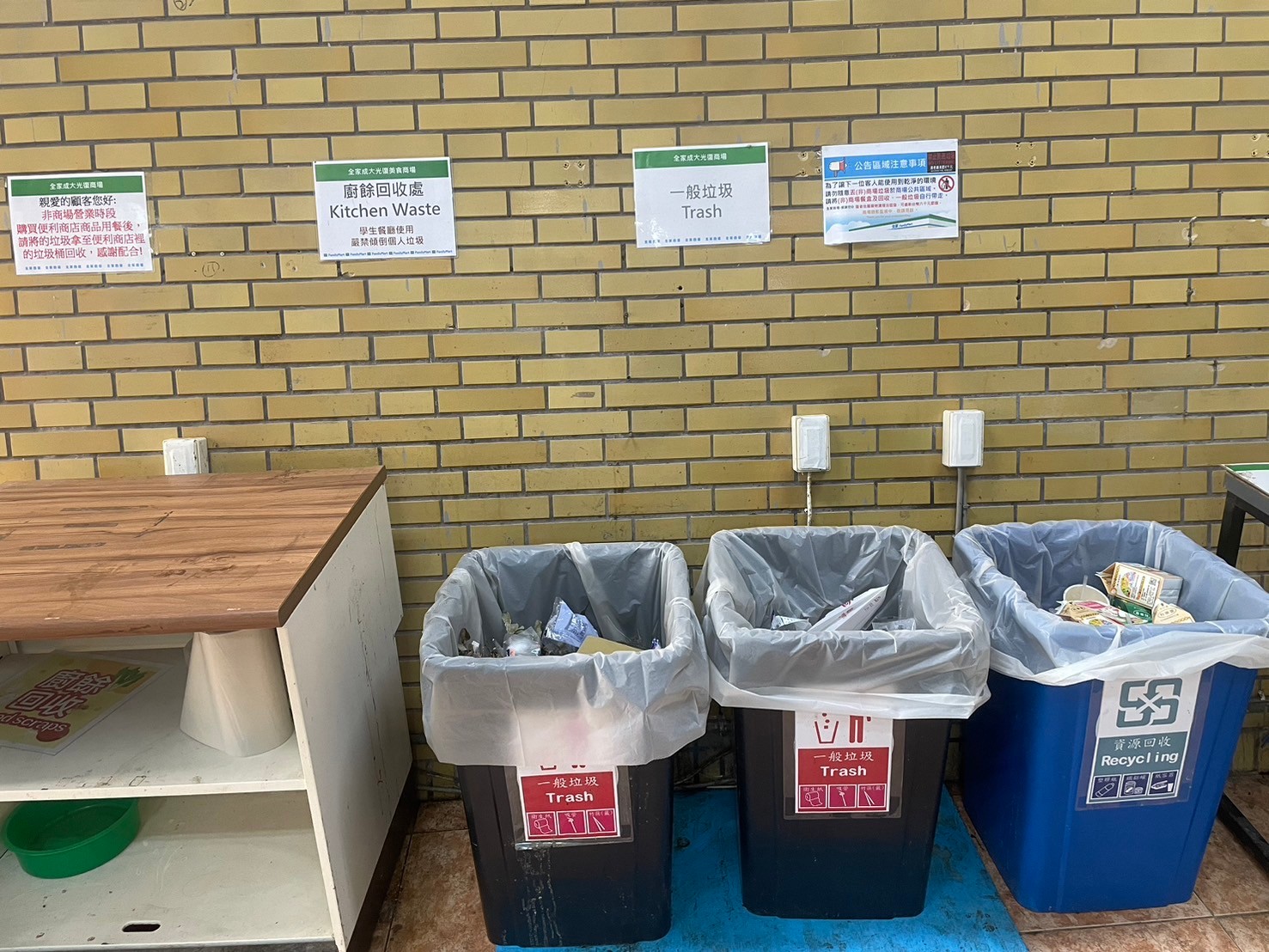
NCKU actively promotes sustainable dining measures on campus. In addition to implementing resource recycling and reusable tableware systems, the university has also planned to share surplus group meals with students to reduce food waste. Campus cafeterias use stainless steel tableware and have set up “tableware collection stations” for centralized washing and reuse, thereby reducing the consumption of disposable utensils. At the same time, categorized bins are provided to separate food waste, recyclables, and general trash, improving recycling efficiency. More importantly, NCKU promotes the redistribution of surplus group meals, offering extra food to students in need, combining food resource reuse with social care. This initiative demonstrates the university’s strategy of integrating plastic reduction, food conservation, and a circular campus, thereby achieving source reduction and aligning with the SDGs’ sustainability goals.
